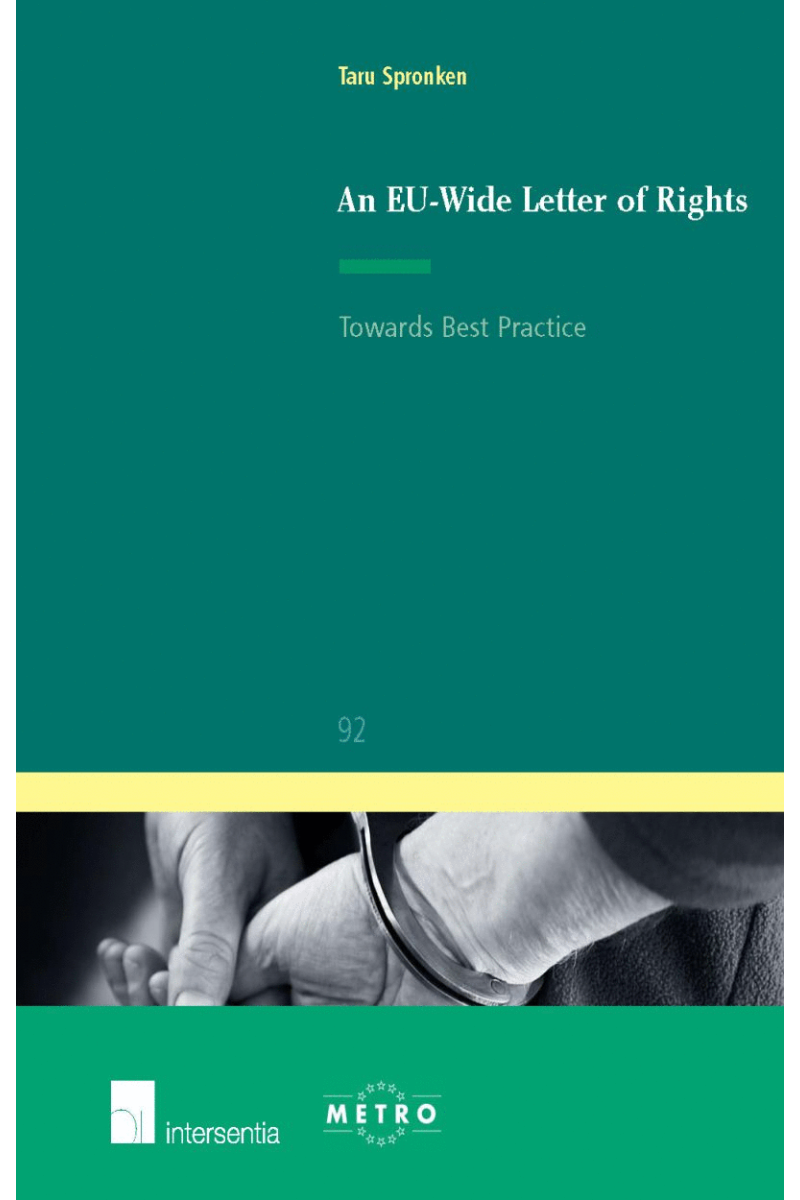 maestro
mastercard
visa
maestro
mastercard
visa

An EU-Wide Letter of Rights
Towards Best Practice

Everybody who is arrested or questioned by the police on suspicion of involvement in a criminal activity has certain rights, such as the right to remain silent or to consult a lawyer. One of the key factors in ensuring fair proceedings is whether suspects have a sufficiently detailed knowledge of their rights. It cannot be presumed that suspects know their rights at the moment they are confronted with a criminal investigation. Especially in situations where they are deprived of their liberty during arrest or police custody, suspects might find themselves in a stressful situation unaware of their rights or without knowledge of how they can invoke them. Provision of information of rights is therefore a prerequisite to accessing them.
This report presents the results of the research project ‘EU-wide Letter of Rights in Criminal Proceedings: Towards Best Practice’. In this study information has been gathered on the way suspects in the EU Member States are informed in writing of their rights in criminal proceedings. Subsequently a normative framework has been developed based on the jurisprudence of the ECtHR to establish standards and a legal basis for information that should be given to the suspect in the initial phase of police investigations. Finally a model has been developed for an EU-wide Letter of Rights to be applicable throughout the EU that can function as an inspiration for initiatives on the national level as well as on the EU level. The book provides the complete research results in its annexes and an insight into the way suspects are informed of their rights throughout the EU and is essential reading for academics, researchers, students, defence lawyers and policy-makers working in the area of criminal justice in Europe.
About this book:
‘This book is timely and to be commended, not only in its breadth of research, but of value in bringing to the attention of practitioners and policy makers the issues now at the core of the implementation of the Stockholm Programme.’
David Dickson in the Journal of the Law Society of Scotland (2011)
‘[a] rich source of information, not only on how suspects and defendants at the national level of the Member States are informed of their rights, but also on the minimum level of rights that suspects and defendants in the earliest stage of criminal proceedings already have on the basis of the ECHR and Strasbourg case law. This has been translated by the authors into a Model Letter of Rights, which has influenced and must still influence the development of an EU-wide Letter of Rights. […]a valuable tool not only for national and European legislatures, but also for practitioners, possibly when – in the future – an EU-wide Letter of Rights actually applies.’
Jannemieke Ouwerkerk in 2012 CMLR 1241
| Type of product | Book |
|---|---|
| Format | Paperback |
| EAN / ISSN | 9789400001633 |
| Series name | Ius Commune Europaeum |
| Weight | 906 g |
| Status | Available |
| Number of pages | x + 526 p. |
| Access to exercice | No |
| Publisher | Intersentia |
| Language | English |
| Publication Date | Nov 22, 2010 |
| Available on Jurisquare | No |
| Available on Strada Belgique | No |
| Available on Strada Europe | No |
| Available on Strada Luxembourg | No |
Downloads
- Table of Contents
- Chapter 1: Introduction and Background
- Chapter 2: Existing Practice in EU Member States
- Chapter 3: The Normative Framework
- Chapter 4: A model for an EU- wide Letter of Rights in Criminal Proceedings
- Bibliography
- Annex 1: Letters of Rights per Country
- Annex 2: Written Information per Country
- Annex 3: Overview of Rights listed in Letters of Rights per Member States
- Annex 4: Overview of Rights mentioned in Written Information
- Annex 5: Formulations of rights listed in Letters of Rights and written Information
- Annex 6: Proposal of the European Commission for a Directive on the Right to Information in Criminal Proceedings 20 July 2010
- Annex 7: Translations into 23 EU languages of the Model Letter of Rights